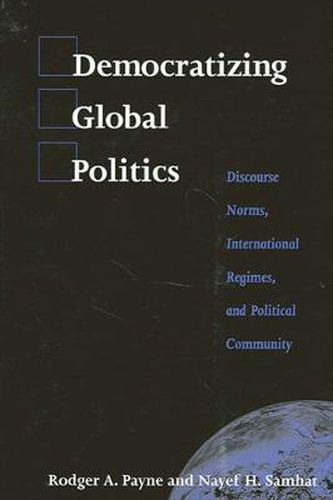Readings Newsletter
Become a Readings Member to make your shopping experience even easier.
Sign in or sign up for free!
You’re not far away from qualifying for FREE standard shipping within Australia
You’ve qualified for FREE standard shipping within Australia
The cart is loading…






Historically, international institutions have been secretive and not particularly democratic. They have typically excluded almost all interested parties except the representatives of the most powerful nations. Because of this deficit of democracy international organizations and regimes have found themselves the target of protest movements and lobbying campaigns. Democratizing Global Politics finds that, in response to this mounting legitimacy crisis, international organizations and regimes are beginning to embrace new norms of participation and transparency, opening the decision-making process to additional political and social actors and creating opportunities for meaningful external scrutiny. Two case studies examine the construction of such discourse norms in the Global Environmental Facility and the World Trade Organization. The authors conclude that these normative changes not only legitimize international institutions-they also promote the development of political community on a global scale.
$9.00 standard shipping within Australia
FREE standard shipping within Australia for orders over $100.00
Express & International shipping calculated at checkout
Historically, international institutions have been secretive and not particularly democratic. They have typically excluded almost all interested parties except the representatives of the most powerful nations. Because of this deficit of democracy international organizations and regimes have found themselves the target of protest movements and lobbying campaigns. Democratizing Global Politics finds that, in response to this mounting legitimacy crisis, international organizations and regimes are beginning to embrace new norms of participation and transparency, opening the decision-making process to additional political and social actors and creating opportunities for meaningful external scrutiny. Two case studies examine the construction of such discourse norms in the Global Environmental Facility and the World Trade Organization. The authors conclude that these normative changes not only legitimize international institutions-they also promote the development of political community on a global scale.